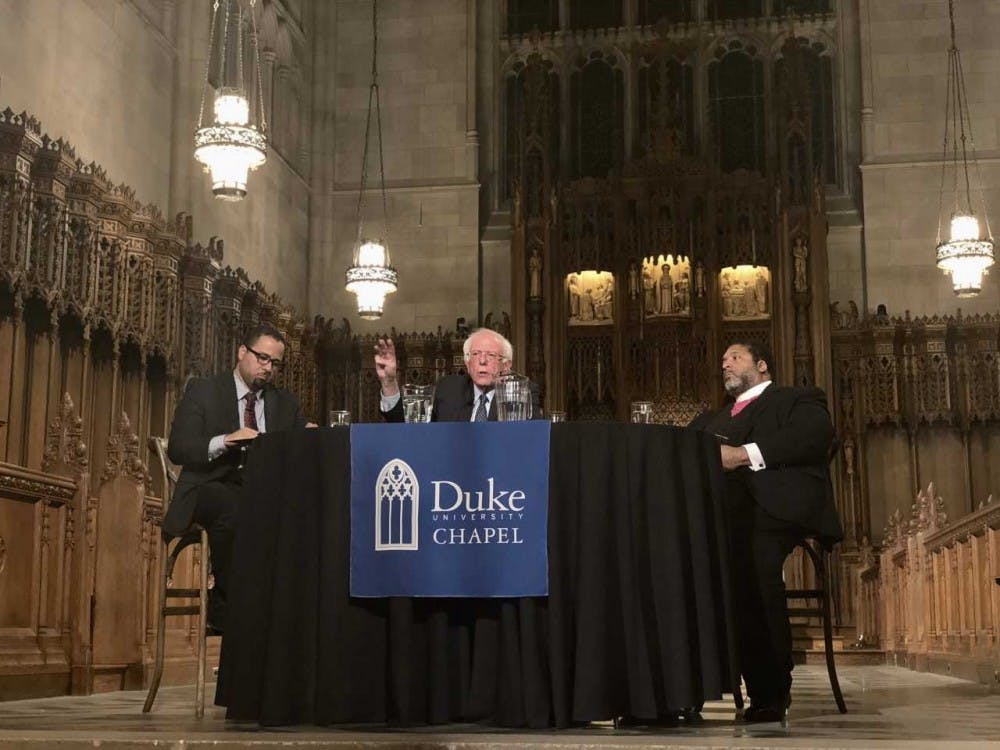U.S. Sen. Bernie Sanders, I-V.T., joined Rev. William Barber II for a public forum Thursday night at Duke University Chapel.
The conversation, which was originally scheduled for Jan. 19 but was postponed due to a U.S. Congress budget vote, was called “The Enduring Challenge of a Moral Economy: 50 Years After Dr. King Challenged Racism, Poverty and Militarism.” Sanders and Barber discussed and answered audience questions concerning a variety of pressing political issues, such as inequality, military spending, racism and Russia, as well as the legacy of Rev. Martin Luther King Jr.
Sanders, a former candidate for the Democratic presidential nomination, advocates for policy changes like universal health care and free public university tuition. Barber is an alumnus of Duke Divinity School, national co-chairperson of the Poor People’s Campaign: A National Call for Moral Revival and president of Repairers of the Breach.
Ajay Dheeraj, a first-year student at Duke, said he was excited to see Sanders speak because he’s both important and well-liked — a rare characteristic in modern political figures.
“I saw a lot of him during the election season, and he seemed well-meaning and nice, so I’m curious to see how that translates in real life,” he said prior to the event. “I hear he’s really inspiring.”
Sanders said the concept of a moral economy stems from the injustice and gross immorality of three people in America owning more wealth than the bottom half of the American people.
“The way we bring about change is having the courage to talk about reality that you may not see on TV and you surely will not hear discussed in the United States Congress,” he said. “When we talk about a moral economy, we start off recognizing that we are the wealthiest country in the history of the world.”
Barber said systemic racism and economic inequality go hand-in-hand and that you cannot have one without the other.
“I was taught that there is no separation between justice and Jesus,” he said. “Any attempt to separate the two is heresy.”



